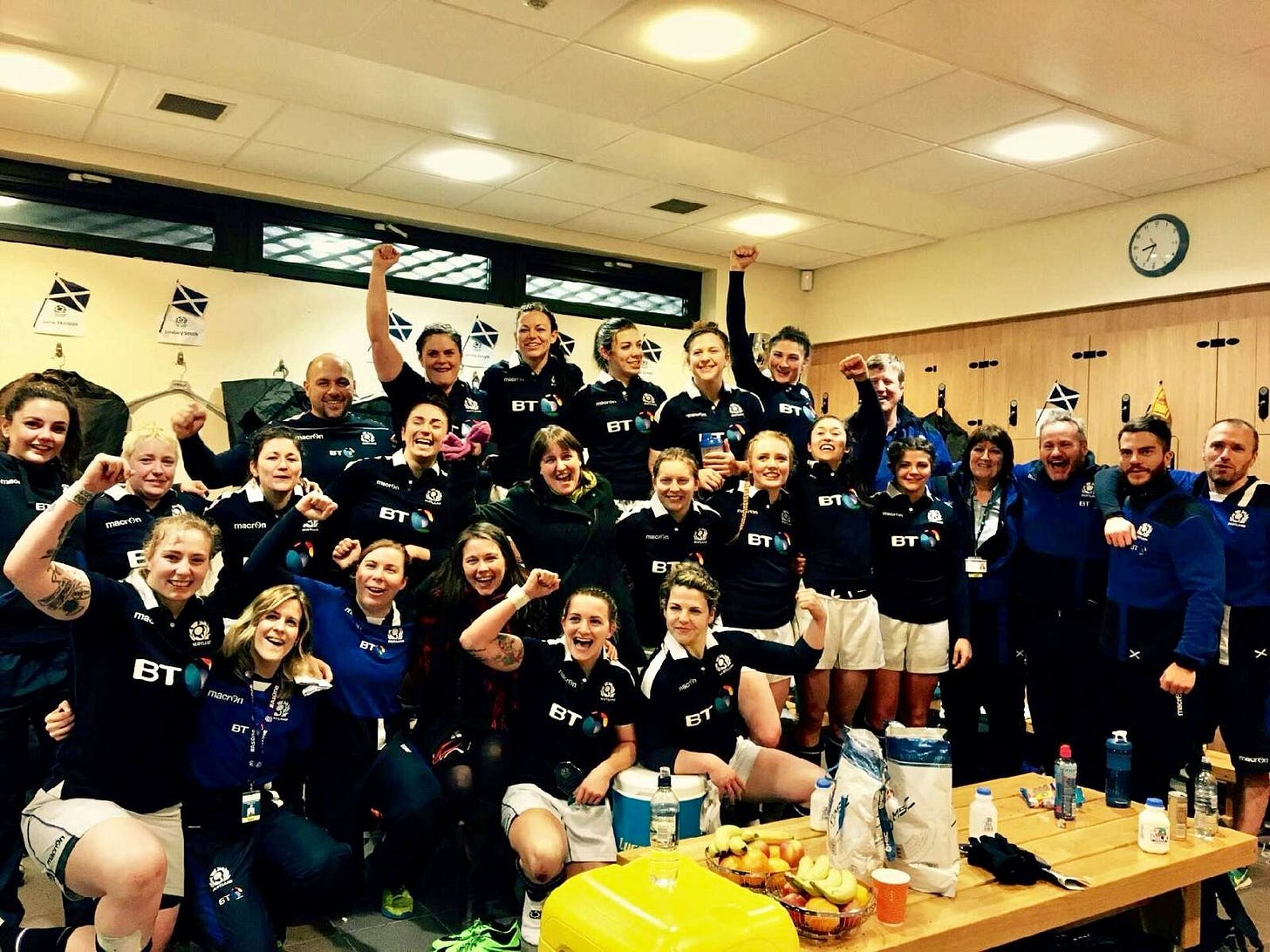Growing self-belief and creating social environments in performance rugby
Graeme Young has coached in a number of teams in Scotland including the national women's team. Graeme discusses his philsophy and why being specific with coaching messages matters.
Graeme Young has a wide range of experience coaching within Scotland. This includes coaching within the national women’s team for the years 2014-2017. Graeme talks about his experiences and why relationships are important for coaching:
As well as assisting the Scotland women’s team, I have also had coaching roles as: Stirling County U18 Assistant Coach, Stirling County 2nd XV Assistant Coach, Stirling County 1st XV Assistant Coach, Stirling County Head Coach, Scottish Club International Assistant Coach and Scottish Rugby Union Development Officer.
My time in the Scottish Woman’s setup was combined with two excellent coaches in Shade Munro (Head Coach) and Peter Jerecivich. Shade and PJ were both professional coaches and excellent at their roles. As an HR professional who had coached rugby as my passion, I learned a huge amount from them both and they were key pillars to growth and success.
Coaching the Scottish women’s team was a wonderful experience. We had a group of players who were incredibly passionate about representing their country but had lacked investment in recent years.
The team needed to grow self-belief. As coaches, we needed to be very mindful of individual learning styles and to support the evolution towards high performance behaviours. I have always believed that to have sustained high performance, you must have a high performance environment and a high performance culture first.
Many of our players had only been playing for a couple of years or a handful of years. This meant that there needed to be a key focus on fundamental aspects of conditioning and skill development to support being ready to compete at international level.
We also needed to tackle historical environmental issues that were a barrier to high performance. We wanted to improve as a team, compete, break the barrier of winning and then to sustain our performance.
I learnt loads during my time with the team. At international level, you do not have your players for long periods. This means strong relationships with clubs are key. We needed to ensure we kept the environment very relaxed and social. Removing elements of pressure helped result in better training and therefore better performance.
It’s important to always be sure the basics are well re-enforced before moving on. At international level, it often is world class basics that makes the difference.
We tried to instil that losing isn’t failure, it’s where the best learning is. If we could use the learnings it would accelerate our growth thus shorten the performance gap between ourselves and the other 6 nations teams (you really do learn more from your loses than your wins!).
It’s important to try not to be outcome focussed and instead to focus on getting better and better. We had an incredible analyst who helped us measure our improvement to show we were on the right track which backed up our consistent messaging with data.
One of my favourite memories was seeing the impact on players, watching them grow and enjoy the environment. It was also great to experience our first win in 7 years and first season with 2 wins in the 6 Nations in 11 years. The girls were so passionate about representing Scotland and to see where they came from and the progress that was made towards winning is a moment I cherish.
Our coaching sessions aimed to be fun and engaging. This can be hard when you know you are representing your country! To help accelerate our learning we used drills to break down skills, then took them into a game context then scaled back to drills. I learned that focussing on the areas that would make the biggest difference is key, you can’t try do everything in short succession but as coaches we can be guilty of trying to over complicate!
We used lots of the same key messages detailed time and time again to re-enforce learning. Our analyst helped support visual learning and we intertwined passionate engaging clips to show how far we had come and the team’s potential.
It’s important to lead with empathy, recognise that we all learn at different speeds, understand your people, what’s makes them tick, where do they thrive and to make it fun – if you love what you do you will do it to the best of your ability!
Coaching philsophy: I aim to put my players at the heart of all I do.



